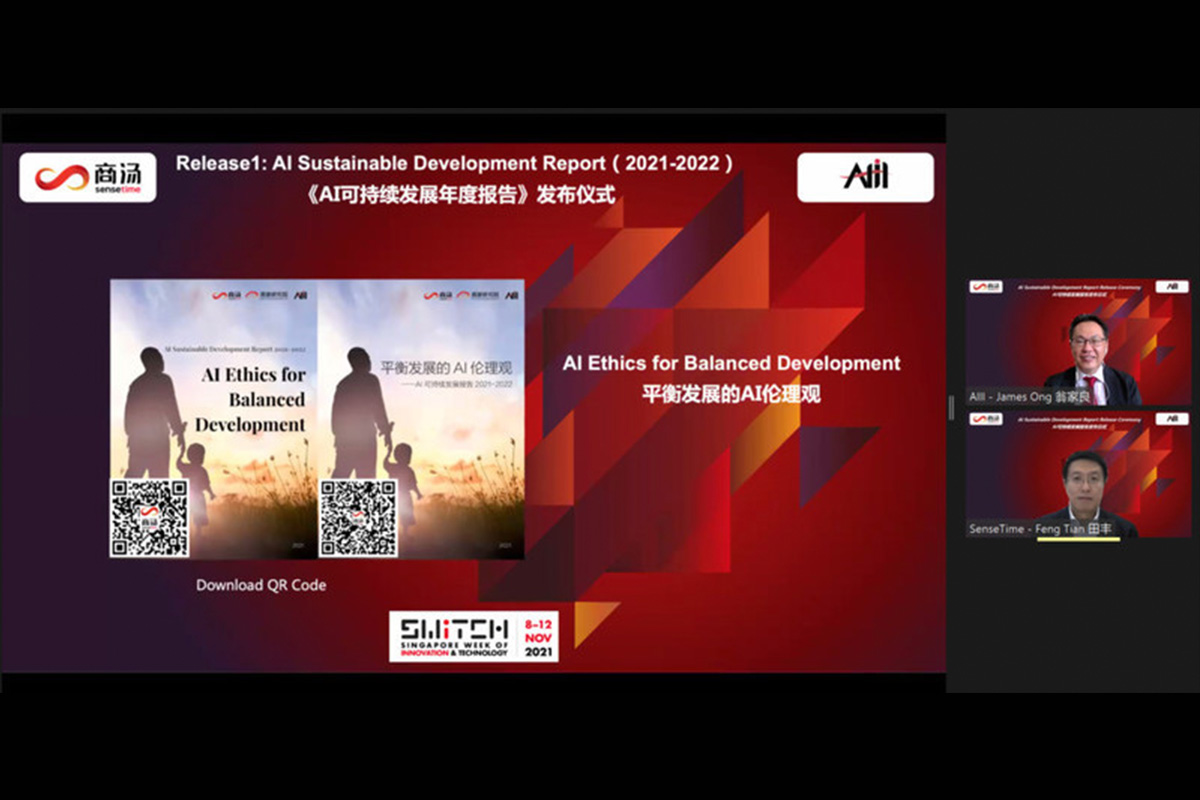SenseTime, a leading global artificial intelligence (AI) software company, partnered with Bank of Ningbo (Shanghai Branch) to develop a digital human named Xiaoning. Leveraging SenseTime’s original virtual IP solution and AI technologies, the bank’s first digital employee helps it innovatively transform the front-end business into a new customer relations and marketing strategy through high-efficiency and low-cost AI-Generated Content (AIGC). On December 16, Xiaoning hosted an unparalleled interactive online live show to introduce a variety of financial products and benefits of Bank of Ningbo to customers in a professional and humorous manner.
Advancing customer service with digital transformation
During the live broadcast, Xiaoning impressed the audience with a funny talk show, followed by performing a professional business manager in the bank. The vivid voice and actions earned high praise from audiences. The live show is not only the debut of Xiaoning on the platform, but also the first application of SenseTime’s AI digital human in online marketing. By reaching the target audiences in an innovative way that increases brand awareness, the digital human further accelerated the digital transformation of the bank.
As an innovative practice of “finance + technology” in a new era of digital economy, the AI-powered digital human has been increasingly used in the banking industry. Xu Xuesong, President of Bank of Ningbo Shanghai Branch, said, “Xiaoning shows our philosophy of empowering business with technologies and creating values for our customers. It is also an exploration of the bank’s digital transformation. Through cooperation with SenseTime, we hope to enable a deep integration between AI and banking and achieve a win-win situation between banks and enterprises, hereby bringing a more intelligent and efficient service experience to our customers.
In the fields of finance and banking, SenseTime has successfully applied multi-functional AI digital humans across different scenarios, forming an operationally closed loop for businesses. In the bank branches, the digital human effectively improves service quality and operational efficiency, while during the customer engagement online, it helps enterprises build brand awareness through its unique personality.
Dr. Xu Li, Executive Chairman of the Board and CEO of SenseTime, said, “Upholding a vision of advancing the interconnection of physical and digital worlds with AI, driving sustainable productivity growth and seamless interactive experiences, SenseTime partnered with Bank of Ningbo to create the digital human Xiaoning. We trust it is just the beginning. We hope to promote digital transformation in the financial industry, opening infinite opportunities for AI + Finance.”
Strengthening brand image through AI-Generated Content
Based on brand labels and elements of different businesses, SenseTime’s virtual IP solution can intelligently generate exclusive images in line with the brand’s character and tonality. It aims to make brand image younger, more vivid and recognizable as well as to break stereotypes and close the distance with customers.
The solution has highly malleable content generation capability, which can customize a series of AIGC content including the growth story of the IP and creative short videos. It enriches the virtual IP image and boosts brand affinity. SenseTime’s digital human created by virtual IP solution can provide independent live broadcasting operation, from interaction with fans to promoting products, which maximizes the outreach to target audiences all day with lower operational costs. It significantly increases brand stickiness and loyalty, bringing continuous value to the brands.
Underpinned by the proprietary OpenXRLab, an open-source extended reality(XR) platform empowered by leading algorithms as well as a large amount of live action data, SenseTime has created a deep learning based motion capture and generation solution. With strong adaptability, high freedom and easy deployment, the solution can generate AIGC content efficiently at a low cost, without green screen and professional dynamic capture equipment, meeting business needs in virtual IP content customization, live broadcasting, etc. The solution can achieve smooth and high-precision video creation and real-time interaction in daily live broadcasting with low computing power equipment. Meanwhile, it provides a large-scale, high-quality and semantic 3D posture library, which supports enterprises to create and customize their own digital human.
The cooperation between SenseTime and Bank of Ningbo Shanghai branch showed the application of SenseTime’s digital human has expanded from offline services to online marketing. It helps enterprises to build a younger and more dynamic brand image as well as maximizes the content outreach to the Gen Z target audiences, opening infinite business opportunities in the future. According to Frost & Sullivan, SenseTime’s digital human product has entered the “mature stage” to become a market leader. Moving forward, SenseTime will continue expanding the characters and capabilities of AI digital human, empowering enterprises to embrace the transformation in the digital era.







